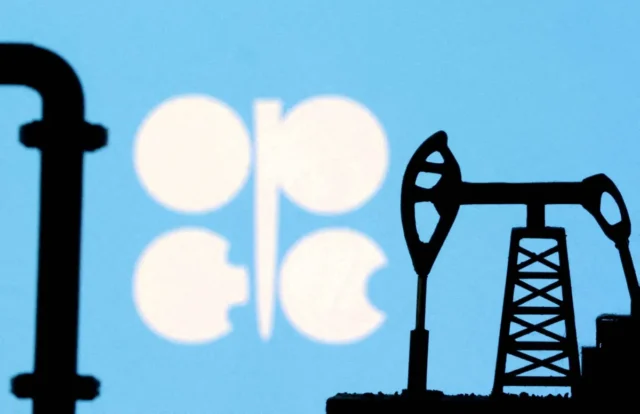Sources from Alliance Opec Plus told Reuters that eight countries in the coalition will probably accelerate the rate of new growth in oil production over August on the Saturday meeting, in the light of its desire to restore its share in the market.
Several sources were informed by Reuters, provided that they are not mentioned by the name that eight countries, Saudi Arabia, Russia, Emirates, Kuwait, Sultanate Oman, Iraq, Kazakhstan and Algeria, it is expected to be 411 thousand barrels per day.
In the case of an agreement, the OPEC Plus Alliance will increase its goals in the amount of about 1.78 million barrels per day, which is equivalent to 1.5 percent of global oil consumption. But the actual increase has occurred less than it; Some member states reduced their production in order to compensate for the previous surplus of production.
Sources said that a group of eight countries on Friday decided to once hold a meeting date. One of the sources said that it is not yet clear whether the final agreement would increase by 411 thousand barrels per day.
The coalition made fundamental changes in its policy this year, after several years of reduction in production, which the total amount exceeded five million barrels per day. This happened when eight participants began to reduce the last segment of their production discounts by 2.2 million barrels per day, starting in April, and they rushed at the rate of increase in May, June and July (July), but an increase in raw oil prices.
This acceleration occurred after some member states, such as Kazakhstan, surpassed the goal indicated for them, which caused the angry of other countries that adhered more to the agreed discounts.
According to the source, familiar data, for Reuters this week, the production of Kazakhstan returned last month and reached its highest level, with an increase in the production of the Tingz field led by Chevron.
The OPEC Plus Alliance, which includes the organization of oil export countries (OPEC) and allies led by Russia, seeks to increase its market share in the light of growing deliveries of other manufacturers such as the United States. The coalition pumps about half of the global oil.
Before their decision, a group of eight countries in OPEC, plus, announced an increase in production by 1.37 million barrels per day. This is 62 percent of 2.2 million barrels of production discounts per day.
In the markets, oil prices fell on Friday, after Iran confirmed its commitment to prohibiting nuclear distribution and expectations that the main manufacturers of raw oil intend to agree to increase their production this week.
By 13:19 Greenwich, Brent oil futures fell by 47 cents, which is equivalent to 0.68 percent to $ 68.33 per barrel, while the intermediate US oil in Western Texas decreased by 43 cents or 0.64 percent to $ 66.57. The transactions were weak from the day of independence in the United States.
On Thursday, on the website, the American News “Axios” said that the United States plan to meet with Iran next week to resume nuclear negotiations, and the Foreign Minister of Iran Abbas Araraki said that Tehran was still committed to the proliferation of nuclear proliferation.
“The United States is ready to resume nuclear negotiations with Iran and clarify Arakji that cooperation with the International Atomic Energy Agency did not stop largely reducing the risk of new hostilities,” said Vandana Harry.
Arakji’s statements appeared the day after Tehran approved the law, suspending cooperation with the International Agency for the United Nations Atomic Energy Agency.
“But the delay in price correction can be delayed until Monday, when the United States resumes their work after a long weekend and take into account the decision“ OPEC Plus ”, which is made on Saturday, which will probably include another increase in the production purpose of 411 thousand barrels a day in August.”
At the same time, the state of blurry resumed the policy of American customs duties with the end of the 90 -day period of comments in order to increase the training rates. The period of ninety days, ending with Trump, before the use of American customs duties is used in the ninth place of this month, and a number of large commercial partners have not completed after commercial agreements, such as the European Union and Japan.









